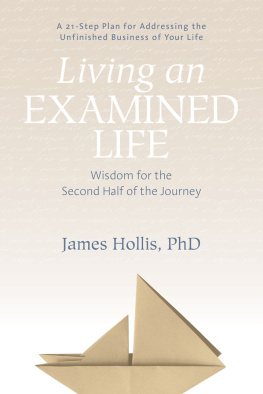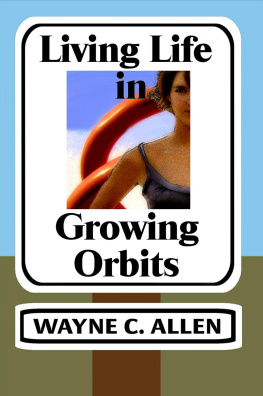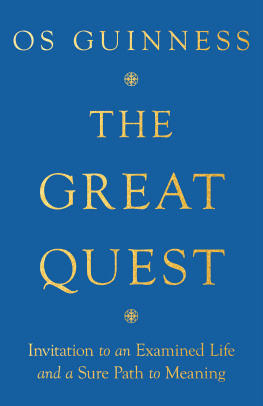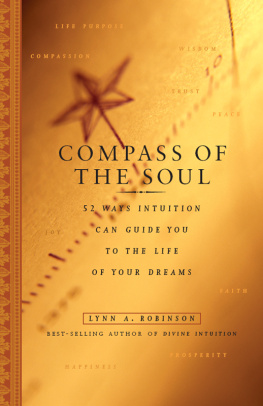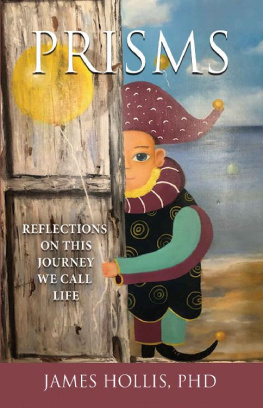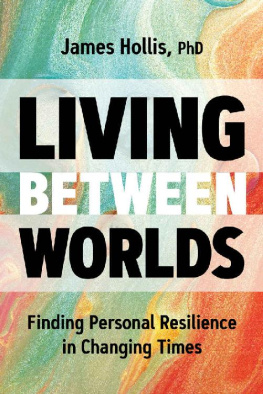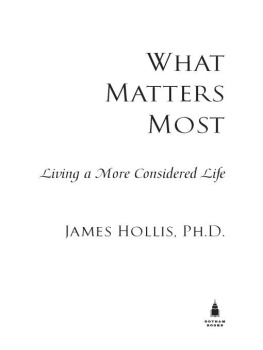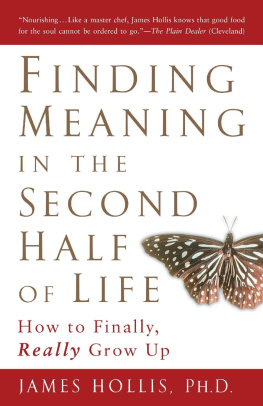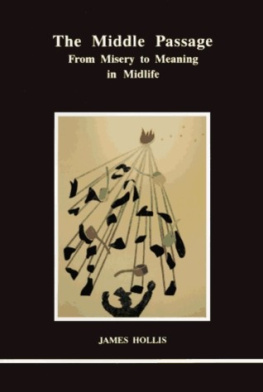
For Jill,
for Taryn, and Jonah, and Seah,
and Tim, always Tim with me.
And my thanks to
Liz Harrison, agent and friend,
and
Gretel Hakanson, editor and friend.
Contents
Preface
I offer this book containing the summation of decades of working with students, clients, analysands, and myself in the hope that it will be helpful to each reader in the conduct of his or her life and bring a greater sense of purpose and personal permission to be, in the end, who he or she is. All that sounds so simple, but in fact it is very difficult.
For the last thirty years, I have had the privilege of traveling to four continents giving presentations and workshops and have flown well over a million miles to these scattered venues. As a result, I have witnessed what touches people, what energizes them, what reminds them of something they know but perhaps have forgotten, and finally, what challenges them to come back to their journey. Herein I summarize these very complex issues in a finite list of graspable points. Sometimes we need a list, sometimes to be reminded, and sometimes to be kicked in the butt. This book is that reminder, that kick in the butt. This book promises nothing easy. It asks that the reader be serious about looking at his or her life and taking responsibility for it. We are, after all, the only constant character in that long-running soap opera we call our life. Therefore, it might well be argued that we are somehow accountable for how it is turning out.
This book contains twenty-one desiderata, the daily acknowledgment of which will change your life, make it more interesting, make it more nearly your own, and make possible the recovery of your journey.
It is my surmise that you have not picked up this book idly or as a distraction. You have done so out of a nagging curiosity, a deep, abiding pain, an unresolved life problem. Moreover, you most likely want surcease of suffering, rapid improvement, and abiding change for the better. If someone tells you the truththat you will likely be dealing with these issues most of your life, that you will come back to them over and over in new venues, new relationships, new stages of lifeyou would likely move on quickly. But the truth is the truth, and as Jung pointed out, we seldom solve problems, but we can outgrow them. That is what this book is about, not solutions, but attitudes, behaviors, and disciplines that move us toward enlargement, toward enfolding our debilitating history into a journey more productive, more clearly our own. As I believe these ideas require reflection, percolation through the layers of our accumulated resistance to change, I strongly recommend that the book not be read straight through, but a chapter a day. Only a disciplined reading allows the ideas to percolate to our soul. To that end, the chapters have been kept short and to the point. Reading one chapter per day allows greater absorption than surfing through the whole permits.
It is my hope that this book will be a tool for each of us to recover respect for that which abides deeply within. As we do, we will not be spared disappointment or suffering, but we will know the depth and dignity of an authentic journey, of being a real player in our brief moment on this turning planet, and our life will become more interesting to us, taking us deeper than ever before. Only then are we on the journey of the soul. As the Danish theologian Kierkegaard observed: merchant mariners get their sailing orders in the safe harbor; men-o-war open their instructions on the high seas. Whether you know it or not, you are on the high seas of the soul and have been so for a long time. It is time to open our instructions, set a new course, turn and tack into the wind, and sail onward, with the destination unfolding as we move.
James Hollis,
Washington, DC
Chapter 1
The Choice Is Yours
W e are flung from the amniotic sea into this life tied to matter, to gravity, to mortality. A fire burns in each of us, a tungsten intensity that flares and flames awhile and then departs. From whence and whither to remain mysteries. And who we are on this planet, and for what purpose, remains a mystery as well. Although the world is full of people who will tell you who you are, what you are, and what you are to do and not to do, they wander amid their unaddressed confusion, fear, and need for consensual belief to still their own anxious journey.
Whether you show up as you in this brief transit we call life or are defined by history, or context, or shrill partisan urgencies substantially depends on you. No greater difficulty may be found than living this journey as mindfully, as accountably, as we can, but no greater task brings more dignity and purpose to our lives. Swimming in this milky sea of mystery, we long to make sense of things, figure out who we are, wither bound, and to what end, while the eons roll on in their mindless ways. It falls then to us to make sense of this journey.
So what could be more obvious than point one: the choice is ours . And yet, is it? We survive in this life by adaptation. We learn from our world families of origin, popular culture, world events, religious training, and many other sources who we are, what is acceptable, what is not, and how we have to behave, perform, in order to fit in, gain approval from others, and prosper in this world into which we were thrust. Historically, all cultures have claimed that their values, their institutions, their marching orders come from the gods, sacrosanct scriptures, and venerated institutions. These givens are laden with presumptive powers and punitive sanctions for transgressions of any kind. A child raised today in the world of virtual reality and video games is just as susceptible to these acculturating and directive images. We become too often a servant of our environment, given our need to fit in, receive the approval of others, stay out of harms way.
When I was a child in the 1940s, for example, there were pretty clear social definitions of gender, of social and economic class, of racial, ethnic, religious identity, and defined acceptable choices. To deviate from these prescriptive templates was to trigger sanctions of enormous proportion. The most common socializing sentence my contemporaries and I heard was, What would people think? A familiar proverb in Japan declares, It is the protruding nail that gets hammered. In the face of such sanctioning power, what child does not begin to adopt the prejudices of his family and tribe, fear the alien values of others, and stick close to home in almost every way?
Since the 1940s and 50s, all of those categories, reportedly created by the gods themselves, have been deconstructed. While sex is biologically driven, gender is socially construed, and constricting definitions for men and women then have proved still another of many frangible fictions. Today we know that the range of choices for any of us is infinitely greater. We know that all races are mixed, that genetically we track back to a few progenitors in central Africa. We know that religions are mostly mythosocial constructs that arise out of tribal experiences that are institutionalized to preserve and to transmit and that the ontological claims of one tribe are no better, really, than the mythosocial constructs of other tribes. We know further that social practices, ethical prescriptions, are subjective value percepts and have no authority outside our tribe. Such a thought would have led any of us to the stake in an earlier era, and still will in many quarters. When an idea occurs as an alternative, forces within the psyche rise to combat it, for our egos are very insecure and prefer clarity, authority, and control at all costs.
Next page
